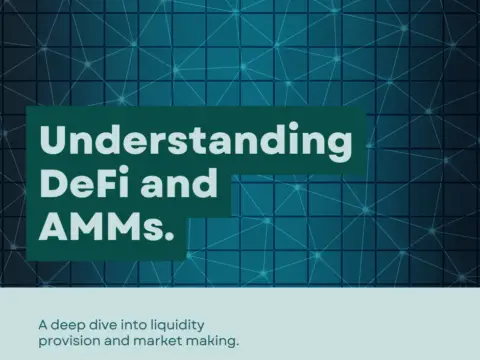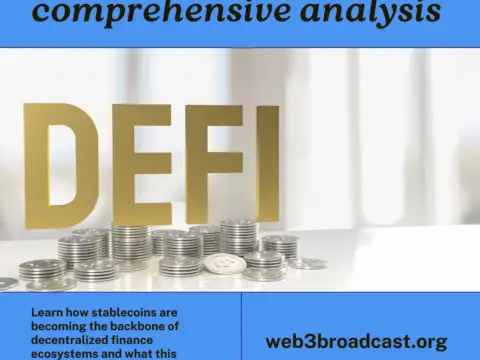Decentralized Finance (DeFi) has emerged as a transformative force in the financial landscape, offering innovative solutions to traditional banking. As the DeFi ecosystem expands, there is a growing awareness of the environmental impact associated with some blockchain networks. This article explores the intersection of DeFi and environmental sustainability, highlighting efforts to promote green finance solutions within decentralized platforms.
1. Blockchain’s Carbon Footprint:
- Understanding Proof-of-Work (PoW) and Proof-of-Stake (PoS): DeFi platforms often rely on blockchain networks that use PoW or PoS consensus mechanisms. PoW, as seen in Bitcoin, is energy-intensive, contributing to a significant carbon footprint.
- Transition to PoS and Other Consensus Mechanisms: Some DeFi projects are transitioning to PoS or other eco-friendly consensus mechanisms to reduce energy consumption and minimize environmental impact.
2. Carbon Offsetting Initiatives:
- Integrating Carbon Offsetting: DeFi protocols are exploring partnerships with carbon offsetting projects. These initiatives aim to neutralize the carbon emissions associated with blockchain transactions by investing in environmentally friendly projects.
- Transparent Reporting: Projects that commit to environmental sustainability often provide transparent reporting on their carbon offset initiatives, allowing users to assess their contributions to green finance.
3. Energy-Efficient Blockchain Networks:
- Choosing Energy-Efficient Platforms: DeFi developers and users are increasingly opting for blockchain networks designed with energy efficiency in mind. Networks like Ethereum 2.0, which plans to transition to PoS, are expected to significantly reduce energy consumption.
- Researching Alternatives: DeFi participants are exploring alternative blockchain networks that prioritize sustainability without compromising security and decentralization.
4. Green Tokenomics and Staking:
- Incentivizing Green Practices: DeFi projects are experimenting with tokenomics that incentivize environmentally friendly practices. Staking mechanisms on eco-friendly networks can contribute to the consensus process while rewarding participants for supporting green initiatives.
- Emission Reduction Strategies: DeFi tokens with emission reduction strategies aim to limit the overall supply, reducing the environmental impact associated with continuous token creation.
5. Community-Led Sustainability Initiatives:
- Community Engagement: Recognizing the power of community-driven initiatives, DeFi projects are encouraging users to participate in sustainability efforts. This may involve discussions, proposals, or even voting on eco-friendly practices.
- Educational Campaigns: Projects are investing in educational campaigns to raise awareness about the environmental impact of blockchain and foster a sense of responsibility among users.
6. Audit and Certification for Green DeFi:
- Third-Party Audits: Green DeFi projects may undergo third-party audits to assess and verify their environmental sustainability initiatives. This adds a layer of transparency and credibility to their green finance efforts.
- Certification Programs: Introduction of certification programs for green DeFi projects can help users identify platforms committed to eco-friendly practices, promoting sustainable choices within the ecosystem.
7. Open-Source Collaboration for Sustainability:
- Collaborative Development: DeFi projects are embracing open-source collaboration to collectively work on sustainable solutions. Shared resources, knowledge, and best practices contribute to a more sustainable DeFi ecosystem.
- Hackathons and Challenges: Events like hackathons and challenges encourage developers to create innovative solutions that enhance the environmental sustainability of DeFi platforms.
8. Regulatory Considerations:
- Compliance with Environmental Standards: DeFi projects are beginning to consider environmental standards in their development, anticipating potential regulatory requirements related to sustainability.
- Engaging with Regulatory Bodies: Proactive engagement with regulatory bodies allows DeFi projects to align with evolving environmental regulations and demonstrate their commitment to green finance.
In conclusion, the intersection of DeFi and environmental sustainability marks a pivotal moment in the evolution of decentralized finance. By prioritizing eco-friendly practices, the DeFi community is actively shaping a more sustainable future for finance, one where innovation and environmental responsibility go hand in hand.




